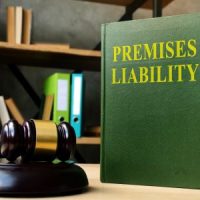Breaking Down Premises Liability In Florida

The concept of premises liability is an old one, able to be traced back to English common law (that is, law that came about due to judges deciding cases, rather than legislators making laws). However, the average person only comes into contact with this legal concept when they are injured on someone else’s property. It can be difficult to determine who is liable for your injuries if you are unfamiliar with the law, though a knowledgeable attorney can help shed some light on the issues.
Common Law Generally Controls
The concept of premises liability law is what establishes liability for landowners and operators of business establishments when someone is injured on their land or in their establishment. It is overwhelmingly a creature of common law, though some states – Florida included – have passed statutes related to the general concept. For example, the state has set up specific rules around “slip and fall” accidents, requiring the victim to establish that the establishment had “actual or constructive knowledge” of potential danger.
In accidents that do not occur inside a business establishment, however, common law still generally applies. Florida’s common law on premises liability establishes a standard of care that a property owner must observe toward each guest in order to be compliant with the law, and the standard of care will differentiate depending on the status of the visitor in question. Trespassers are merely owed the landlord’s refusal to intentionally injure them, while business invitees (those invited to be on the land, for business with the owner) are owed a duty to warn of potential dangers and correct the ones that are fixable.
Different For Children
If you have been injured while on another person’s property, and you suspect that a lack of due care on their part was the cause, you may have grounds to file suit against the owner under a theory of premises liability. Once you have determined your status on the property – as an invitee, a licensee (someone present for business of their own), or a trespasser – you can assess what duty of care was owed to you by the owner, and whether or not it has been breached.
If the injured person is a child, the rules are somewhat different, particularly if the child is under the age where they are reasonably expected to understand right from wrong. Florida observes what is known as the “attractive nuisance” doctrine, which holds that a property owner is liable for a trespassing child’s injuries if they were aware of a fixture on their land, which could be dangerous for minor children, and did nothing to fix or warn of the danger. While the law lists specific examples, any item that could plausibly be an attractive nuisance may qualify.
Call A Tampa Premises Liability Attorney
Being injured on another person’s property can be a frightening experience, but if it happens to you, know that you have the right to seek damages if the owner acted negligently. A Tampa premises liability attorney from the Rinaldo Law Group can help answer any questions you may have about your situation. Contact our office today at (813) 831-9999 for a free consultation.
Source:
leg.state.fl.us/Statutes/index.cfm?App_mode=Display_Statute&URL=0700-0799/0768/Sections/0768.0755.html












